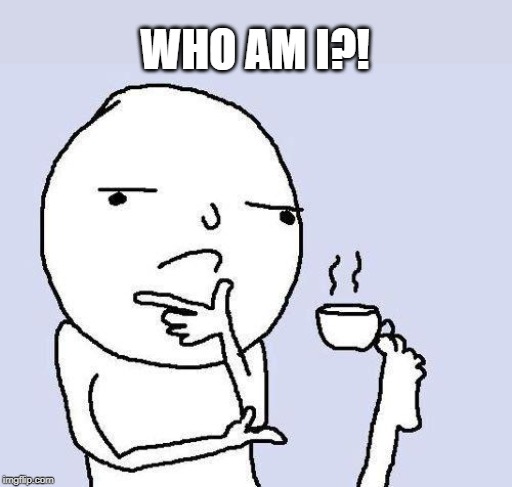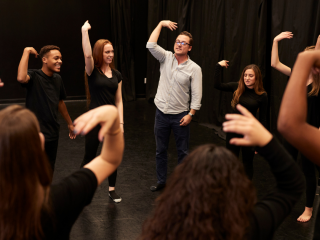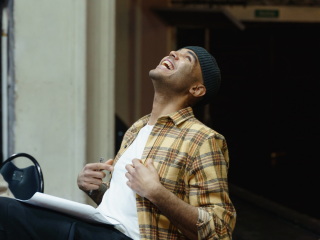At some point in your career as an actor, you’ll hear the word ‘type’. You may be asked to identify your own type or what you think a fellow actor’s type is. But what the heck is type, anyway? How do you know what yours is? Why does it matter? For many reasons, nailing down an understanding of type and how to use it remains oddly elusive. I hear it from students all the time:
“I know type is important, but nobody told me how to figure out what mine really is.”
Let’s dissect type a bit and try to figure out how to use it to your advantage in auditions.

What is Type, Anyway?
It might be helpful to define what we mean when we say type. For our purposes we’ll keep it short and simple: type is the complete package you offer as an actor. That includes your look, your voice, and the personality or spirit you bring to a role. It’s what casting directors use to categorize actors and help determine which roles they’d be a good fit for. Some actors, like John Wayne for example, have a very specific, well-defined type. Others, like Johnny Depp, are known for being more of a “chameleon” and playing multiple types of characters believably. Could you go from playing The Wolf in Into the Woods to J.M. Barrie? Or from Sweeney Todd to the Mad Hatter?
The classic notion of type was pretty simplistic: actors were either an ingénue (leading man and leading lady) or a character actor (basically anything that wasn’t the leading man or lady type). We still tend to lump actors into one of those two categories, but as the theatrical landscape continues to get increasingly diverse, the discussion around type is becoming more nuanced.
Why Does It Matter?
Regardless of how versatile your type may be, you will spend a lot of time auditioning, especially early on in your career. For most theatre actors, that means a lot of time doing monologues. But how do actors find just the right audition material? The answer starts with type. There’s no shortage of audition monologues out there and if you’re just focusing on finding good monologues, your search will never end. Many actors look for good material that offers compelling acting opportunities and call it a day once they’ve found something good. But you don’t just want good material, you want good material that makes you look good. Sure, Romeo and Martha may have some killer monologues, but if you’re not a Romeo or a Martha you’re doing yourself a disservice by using those monologues, and your audition will feel like you’re trying to fit a square peg in a round hole. In other words, if you’re five feet tall (like me), you’ll probably never play a cowboy. It’s important to know what roles you could believably be cast as, so actors need to know their type and what they want to show off about themselves.
When looking for the perfect monologue for your type, you should definitely check out the hundreds of suggested monologues featured on StageAgent and filter your search by age, gender, style and length.
Talent manager Wendy Alane Wright has some great additional insights on why type matters for actors.
So How Do I Find My Type?
When it comes down to it, all you need to do to figure out your type is to know as much about yourself as possible. But how do you sort through all your traits and boil it down to a “type”? Think of it like putting the pieces of a puzzle together and looking at how the individual parts form the complete picture. The good news is there are some methodical ways to figuring out your type and how to use that information to hone in on the right material.
- First, find the positives. We tend to focus on our negative physical or personality aspects, but this doesn’t do you any good as an actor. After all, we all have things about ourselves we’d like to change (and sometimes those “negative” traits can actually be used to your benefit). Instead, identify a handful of things about yourself that you really like. Then, ask around. Ask your friends and family what their favorite things about you are. You might be surprised at what you hear! Once you get a sense of your best positive traits, start looking for monologues that will show those things off.
- Figure out your first impression. Remember: type really comes down to what kind of first impression you make when you walk into a room. Are you shy or the life of the party? Do you like to make jokes or is it all business all the time? Do you have unique physical attributes that people tend to notice? Then, think about how you might fill in this sentence: “I am the ___________ who will ________________”. For example: I am the dorky sidekick who will cheer you up on a bad day. Great! Now you can start choosing audition material that shows off those traits. Remember, be realistic and honest with yourself and avoid judgment.
- Be specific. Think beyond simple categories like “the jock” or the “college girl”. After all, a jock can be sensitive or silly or anything in between. Use strong, descriptive adjectives and active verbs. Let’s face it, theatrical characters are often just that: theatrical. They’re nuanced and colorful, and your best audition material will be the same.
- Pinpoint the unique. You’re going to land roles based on what unique traits you can bring to the role. Those traits might be things you feel uncomfortable or embarrassed about, but by shying away from them you’re doing yourself a disservice. Rather than trying to hide them or play against them, find material that will allow you to use those traits to your advantage. So if you’re five feet tall and have a mousy voice, own it! You never know what vision a director might have for a character, so the best you can do is be yourself.
- Don’t force it. Yes, you should own that mousy voice, but remember to match the material to it. In other words, a David Mamet monologue might not be the best choice (unless you’re going for a comedic effect).
- Look beyond your look. Yes, your physical characteristics are important in defining your type and what kind of roles you’ll play. Sometimes when we think about types, we think only in terms of look (e.g. “he looks like a jock”). But remember to take into account the whole picture, not just what you look like. Type is your complete package, and utilizing your non-physical unique traits will help differentiate you in auditions.
Type can seem a little overwhelming and maybe even dehumanizing, but at the end of the day it’s really an opportunity to learn more about yourself and celebrate what you discover. You’ll have the most luck if you’re honest and fearless with whatever it is you bring to the table. Sometimes the temptation is to try to force ourselves into a role, but when it all comes down to it, perhaps Polonius said it best: “to thine own self be true.”















2 comments
I need an South African published monologue for the auditions I’ll be going to, tomorrow
You can browse through hundreds of suggested monologues to find the right one for you! https://stageagent.com/monologues